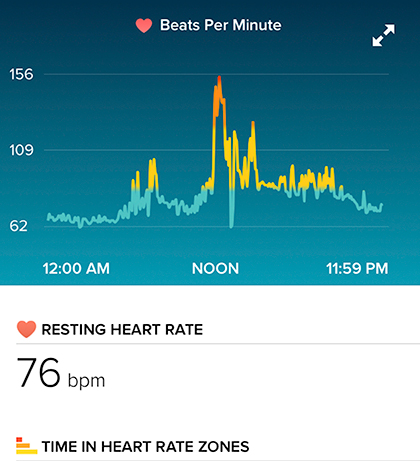While advanced wearables are only now starting to catch on as tools for detecting and tracking of a variety of medical conditions, it turns out that simple fitness trackers that feature heart rate monitoring can be life saving devices. A patient with atrial fibrillation following a seizure showed up at Our Lady of Lourdes Medical Center in Camden, N.J., but the clinical team did not know when the arrhythmia began. This is important for deciding whether to perform a cardioversion since chronic fibrillation can develop a left atrial appendage clot and the treatment can cause the clot to be dislodged and travel up the aorta.
Conveniently, the patient was wearing a Fitbit Charge HR wrist-worn activity tracker that was continuously recording his heart rate throughout the day. The doctors decided to take a look at the data, which clearly showed that there was an abnormal change in the heart rate of the patient right around the time of the seizure. This confirmed that the atrial fibrillation began recently and that it didn’t last long enough for a clot to be developed. Having received the green light from the Fitbit, the doctors cardioverted the patient and sent him home with a regular rhythm and no fear of a dangerous clot.
Here is a video showing the data gathered from the Fitbit app followed by the administration of the correcting electric shock.
Read More – Source: Fitbit Activity Tracker Helps Doctors Decide to Electrically Cardiovert The Patient | Medgadget
